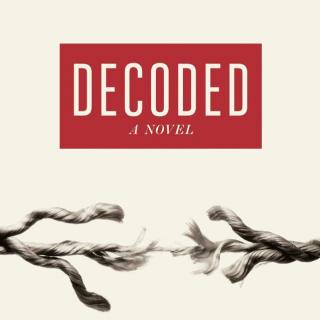
介绍:
Admit it, people, we all love James Bond more or less.
Even though he is a deadly assassin and sexist, we still get hysterical when double-0 seven in a Savile Row tuxedo nimbly threads through a hail of bullets and flirts shamelessly with the ladies.
That probably explains why Ian Fleming&`&s collections and Jason Bourne series are still the most sought-after spy thrillers.
But Chinese bestseller Decoded, or widely known as "Jie Mi", may not be your typical spy story. Or at least, its hero is not conventional.
Author Mai Jia elaborates.
"The protagonist of my book Decoded is actually a man like Edward Snowdon. But they are the two sides of a same coin. One betrays his country; while another safeguards his nation to an extent where he is willing to sacrifice himself. However, the nature of their jobs is the same. Both of them secretly eavesdrop on other people or hostile nations. "
Set in southern China in the 19th century, the story begins with the Odyssey of the Rong family, who made a fortune by selling salt. But their fate gradually changed, after a young man was sent to the western world to learn how to read dreams. But instead of becoming a dream interpreter, he turned out to be a mathematician. Over the years, though the fortune of the house declined, interest in mathematics grew in the family.
But Decoded is not a lengthy chronicle of genealogy. After poetically and dreamily going back five generations, the novel settles on Rong Jinzhen, a math genius who follows the career path of espionage and cryptography in the post-war China.
Mai Jia says many of his inspirations came from his previous experience working in intelligence.
"I didn&`&t stay there long. I had access to only one office and my mentor even warned me not to talk with others. So I didn&`&t know people working next door or those passerby. But what did they do? What happened to them? Where did they come from? They always occupy a place in my mind. The world of today is so noisy and chaotic. If I had never worked there, it would be unthinkable that there is a group of people leading such a simple life. They are people equipped with faith and ideal."
The protagonist Rong Jinzhen is such a man. Born as an illegitimate orphan, he is an eccentric being, a half-autistic soul and yet a self-taught genius. In college, he met a Jewish mathematician Jan Lesiewicz, who later becomes his mentor and future arch enemy. Although Lesiewicz encourages Rong to pursue a career in artificial intelligence, the boy is accidentally recruited by an impenetrable intelligence officer and then drawn into a world shrouded by secrecy and arcane codes.
Obsessive as Grenouille from Patrick Suskind&`&s Perfume while brilliant as the legendary mathematician John Nash, Rong effortlessly cracks Purple, a code that is reputedly unbreakable. However, his infatuation towards its companion cryptogram, Black, grows so strong and intense that it drives him into madness.
When asked why he arranged such an ending for his protagonist, Mai Jia explains.
"I am a pessimist. Most of my characters, no matter how glorious their life once was, eventually they always end up in the grave or bedlam. It&`&s a problem about my writing, but at the same time, I think it reflects a universal truth. Philosophically speaking, a genius is doomed to go through turbulence. If a person is too gifted, he or she may encounter much more traps than the average man. "
Weaving fiction with real people and historical events, Decoded appears to be obscure and confusing at first glance. But coming up to the second half of the book, avid readers will realize that the whole story is actually a documentary narrated by a reporter and key witnesses. But none of them succeed in reconstructing Rong Jinzhen&`&s tale. At the end of the novel, the reporter finds Rong&`&s journal, which reveals the man who is as esoteric as the enigma he cracks.
"Secret service and spy are just the outerwear and tool for my story. What I really want to present is the depth of the human mind and how humanity could be twisted, changed or alienated under the system. "
Published in 2002, Decoded has been translated into multiple languages including English.
大家还在听

